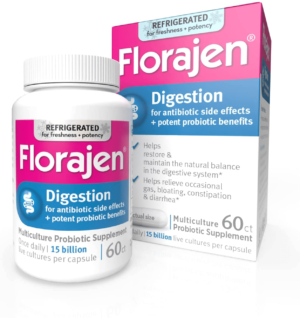Supplements have become increasingly popular as people look for ways to improve their health and wellness. They come in different forms, including synthetic and non-synthetic options. However, there is much debate about which type of supplement is better. In this post, we’ll explore the difference between synthetic and non-synthetic supplements, as well as their benefits.
What are Synthetic Supplements?
Synthetic supplements are created in a lab using chemical compounds. They are designed to mimic the chemical structure of naturally occurring substances found in plants or animals. For instance, Vitamin C can be synthesized in a lab using various chemicals. This synthetic form is chemically identical to the naturally occurring Vitamin C found in fruits and vegetables.
What are Non-Synthetic Supplements?
Non-synthetic supplements are derived from natural sources. These include whole foods, herbs, and other plant-based sources. Non-synthetic supplements are minimally processed and usually contain a complex mix of naturally occurring nutrients, vitamins, and minerals. For example, a supplement made from whole-food sources like leafy greens, fruits, and vegetables is considered a non-synthetic supplement.
What are the Benefits of Synthetic Supplements?
One of the main advantages of synthetic supplements is that they are usually less expensive than non-synthetic supplements. Additionally, synthetic supplements are highly concentrated, which means that you can get a large dose of a specific nutrient in just one pill. This can be beneficial for individuals who have a nutrient deficiency or need to supplement their diet with a specific nutrient.
Another benefit of synthetic supplements is that they are highly regulated. The manufacturing process of synthetic supplements is tightly controlled to ensure that they contain the correct amount of active ingredients and meet safety standards. As a result, synthetic supplements tend to be more consistent in terms of dosage and quality.
What are the Benefits of Non-Synthetic Supplements?
Non-synthetic supplements offer a number of benefits that synthetic supplements may not be able to provide. Firstly, they contain a complex mix of naturally occurring nutrients, vitamins, and minerals that work together to support the body’s natural processes. For instance, a supplement made from whole-food sources can provide the body with a range of vitamins, minerals, and phytochemicals that can help to boost the immune system, support cardiovascular health, and improve digestion.
Another advantage of non-synthetic supplements is that they are generally easier for the body to absorb and utilize. This is because the nutrients in non-synthetic supplements are bound to other compounds, such as proteins or fibers, that help to enhance their absorption and bioavailability. This can result in more efficient nutrient uptake and utilization by the body.
Lastly, non-synthetic supplements are less likely to cause adverse side effects. Synthetic supplements, especially those taken in large doses, can sometimes cause digestive upset, headaches, or other side effects. Non-synthetic supplements, on the other hand, are generally well-tolerated and less likely to cause adverse effects.
Which Type of Supplement is Better?
Both synthetic and non-synthetic supplements have their advantages and disadvantages, and which one is better depends on the individual’s needs and preferences. For instance, synthetic supplements may be more appropriate for individuals with specific nutrient deficiencies or those who require a high dose of a particular nutrient. Non-synthetic supplements, on the other hand, may be more beneficial for individuals looking to support their overall health and wellness, as they contain a mix of nutrients that work together to support the body’s natural processes.
Ultimately, the best approach is to choose a supplement that is of high quality, has been tested for purity and potency, and is tailored to meet your individual needs. It is also important to speak with a healthcare provider before starting any new supplement regimen, especially if you have a pre-existing medical condition or are taking medication.
In Conclusion
Both synthetic and non-synthetic supplements have their own unique benefits and drawbacks. Synthetic supplements are less expensive, highly concentrated, and highly regulated. Non-synthetic supplements, on the other hand, contain a complex mix of nutrients, are easier for the body to absorb, and are less likely to cause adverse side effects.
When deciding between synthetic and non-synthetic supplements, it’s important to consider your individual needs and preferences, as well as the quality and purity of the supplement. Ideally, supplements should be used to complement a healthy diet and lifestyle, rather than replace it.
Additionally, it’s important to note that supplements should not be viewed as a panacea for all health problems. While they can be helpful in supporting overall health and wellness, they should not be used to treat or prevent serious medical conditions without the guidance of a healthcare provider.
In summary, the choice between synthetic and non-synthetic supplements ultimately comes down to individual needs and preferences. Regardless of which type of supplement you choose, it’s important to prioritize quality and consult with a healthcare provider before starting any new supplement regimen.
-
-
-
-
-
Simply Organic Ground Turmeric Root, Certified Organic
$7.99Original price was: $7.99.$7.38Current price is: $7.38. Organic -
-
Cardiac screening
$300.00Original price was: $300.00.$149.00Current price is: $149.00. Lifeline Screening -
5 Life Line Health Screenings
$300.00Original price was: $300.00.$149.00Current price is: $149.00. Lifeline Screening
We're an affiliate. We hope you love the products we recommend! Just so you know, we may collect a share of sales or other compensation from the links on this page with no additional cost to you. Thank you if you use our links, we really appreciate it! Read more

























